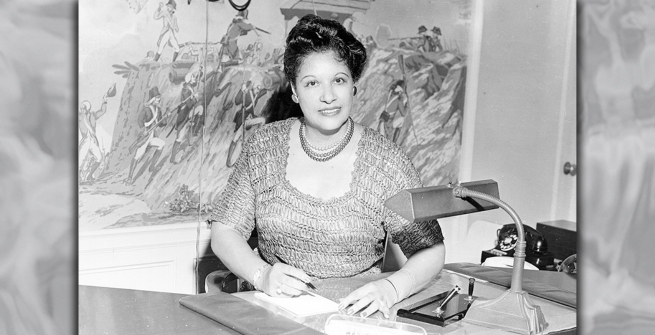At the Vernon - Leon H. Washington Jr. Memorial Branch Library, there is a wall in the meeting room adorned with four framed portraits. Two are paintings: one depicts writer Langston Hughes and is a gift from Miriam Matthews, the Los Angeles Public Library’s first Black librarian. The other is Leon H. Washington, founder and publisher of the Los Angeles Sentinel newspaper and branch namesake. There is also a Bill Dotson etching of Gilbert Lindsay, a long-time City Council Member in the community.
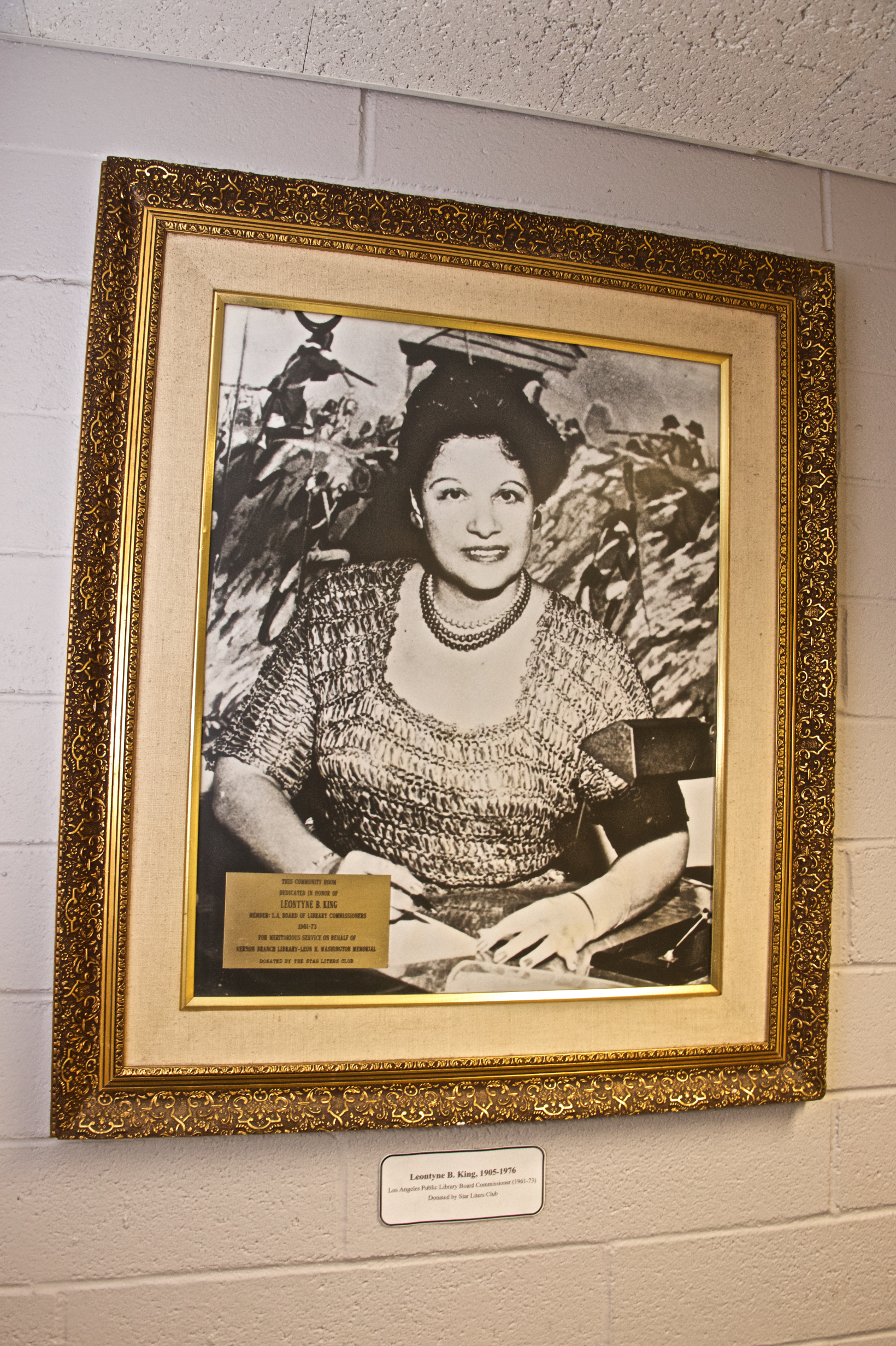
Finally, there is a large photographic portrait of Leontyne B. King, donated by the Star Liters Club. Attached to the photo is a plaque noting that the room is dedicated to King "for meritorious service on behalf of the Vernon Branch Library-Leon H. Washington Memorial." Despite this notation, the room where the portrait is hanging isn’t technically dedicated to King. The branch underwent a reconfiguration in 2004, so the "community room" (or club room as they were sometimes called) dedicated to King no longer exists. Nearly fifty years after her passing, it’s likely that only long-time members of the local community are even familiar with this extraordinary woman who was the first African American to sit on the Los Angeles Public Library’s Board of Library Commissioners. Without her dedication to the community and dogged determination, it’s possible that the Vernon Branch wouldn’t even exist. For Women’s History Month, it’s time to become acquainted (or re-acquainted) with Leontyne B. King.
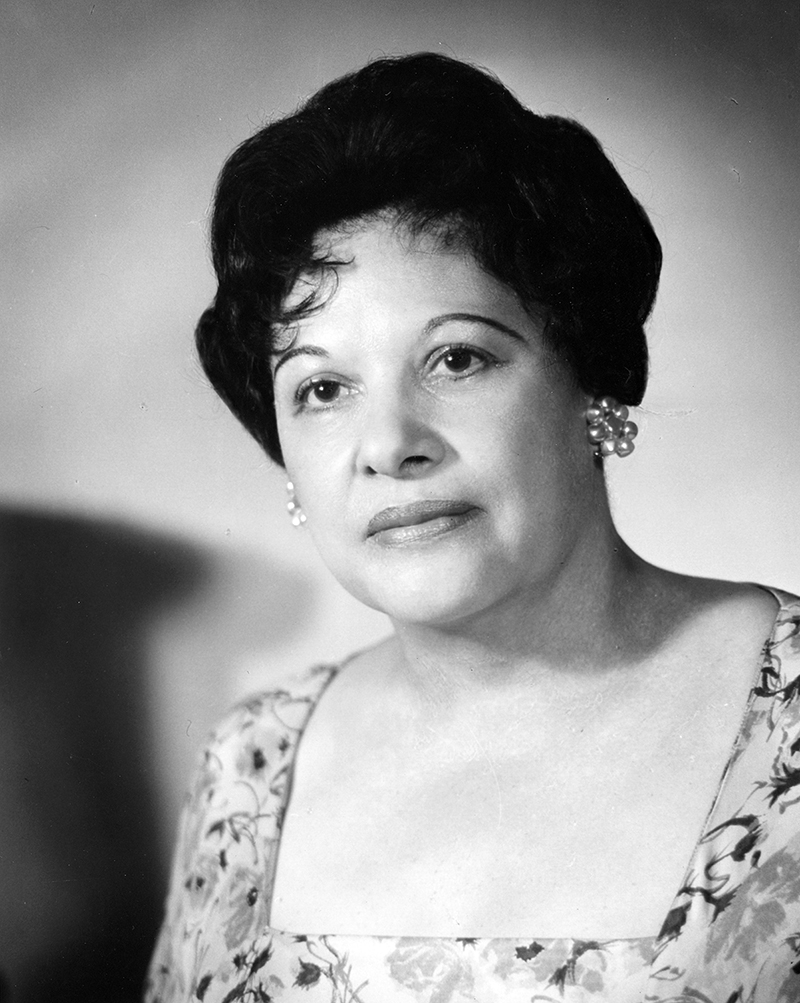
Leontyne Butler was born on July 4, 1905, in New Orleans, eventually relocating to Chicago, where she met and married Celestus "Celes" King Jr. in 1921. Their only child, son Celestus King III, was born two years later. The family moved to Los Angeles in the late 1930s, settling in South Los Angeles, where African Americans were allowed to own property. The couple opened and operated a couple of liquor stores and were property managers. Celes Jr. also helped his uncle, James C. Nelson, manage the now-legendary Dunbar Hotel, located on Central Avenue.
Leontyne quickly became a fixture of Los Angeles Black society, coordinating fundraisers for community churches and clubs and hosting meetings and events at her 1046 E. 42nd Place home. Always eloquent and stylish, Leontyne excelled at producing charity fashion shows and, in 1942, was appointed as the society editor for the Bronze Hour radio program on KGFJ. The California Eagle newspaper and Jet Magazine frequently named her one of the city’s Best-Dressed Women, and the January 1953 issue of Ebony Magazine featured a four-page spread on Leontyne, calling her "California’s Best Dressed." In 1955, she was appointed as the Family Services Adviser of the Angeles Funeral Home and also frequently appeared as a guest columnist for the California Eagle.

In August 1961, Leontyne took on a new advisory role when Mayor Sam Yorty appointed her to the Los Angeles Public Library’s Board of Library Commissioners (BOLC). She was the first African American in the city’s history to serve on the Library Board. A month after the appointment was made, she was named Vice President of the BOLC. Leontyne proved to be an active Commissioner, supporting wage raises for librarians, assessing gaps in library services around the city, and advocating for Black literature to be more prominently represented in library collections. In 1969, she helped organize "Crisis Black and White," a community discussion to address ongoing racial strife in the city. The event, held at Central Library, drew 500 attendees.
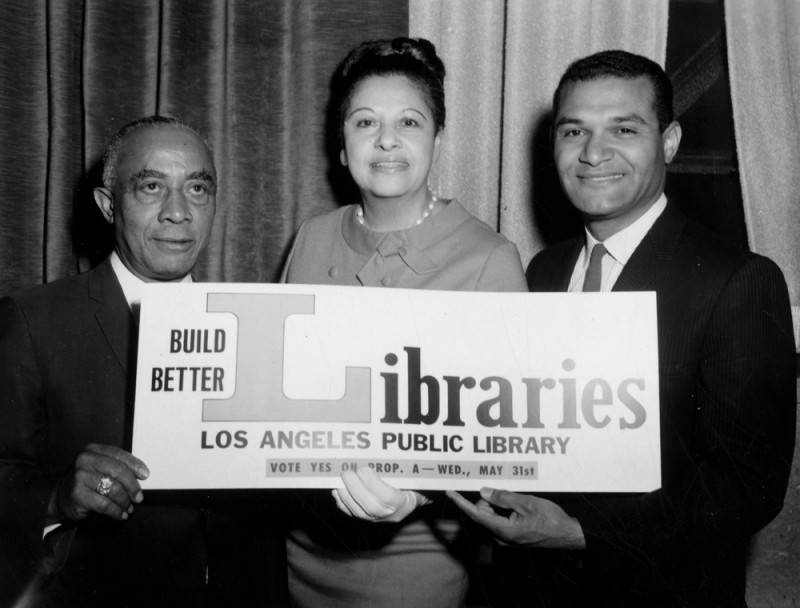
In the interest of Angelenos, Leontyne did not shy away from criticizing LAPL for substandard service and lack of equity in the city’s older, and often Black, communities. She was quick to note that existing branches in these neighborhoods were aging or insufficiently small compared to the spate of new branch buildings on the Westside and in the San Fernando Valley. She was particularly critical of library branches located in storefronts, telling the Los Angeles Sentinel, "While some people are proudly telling the world that Los Angeles is the fastest growing, most modern city in the world, too many of our residents have nothing better than rented storefront libraries for their use." She helped champion Proposition A in 1967, a bond measure to build new or to upgrade existing library buildings. Unfortunately, this turned out to be one of the rare times when residents of Los Angeles did not vote in favor of their libraries.
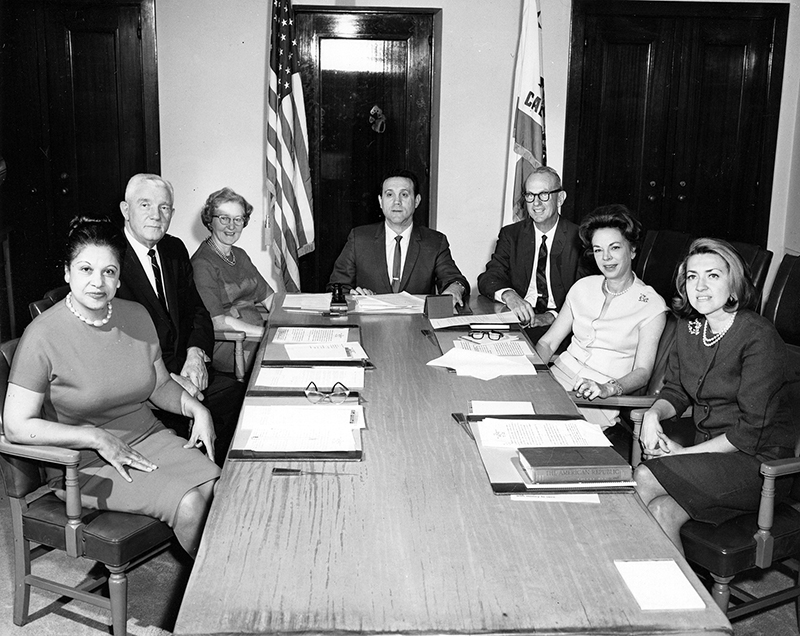
Leontyne became the first African American President of the Los Angeles Public Library BOLC in 1968. Her commitment to, and advocacy of public libraries would extend to several states when she was appointed to the American Library Trustees Association Board of Directors in 1969, representing libraries in Alaska, California, Hawaii, Idaho, Oregon, and Washington. She was also actively involved with the American Library Association and the California Library Association. While Leontyne was an advocate of public libraries at large, she held a special place for the Vernon Branch, which had been within walking distance of the 42nd Place home she and Celes lived in for many years. Her commitment to the Vernon Branch continues to be one of her lasting legacies.
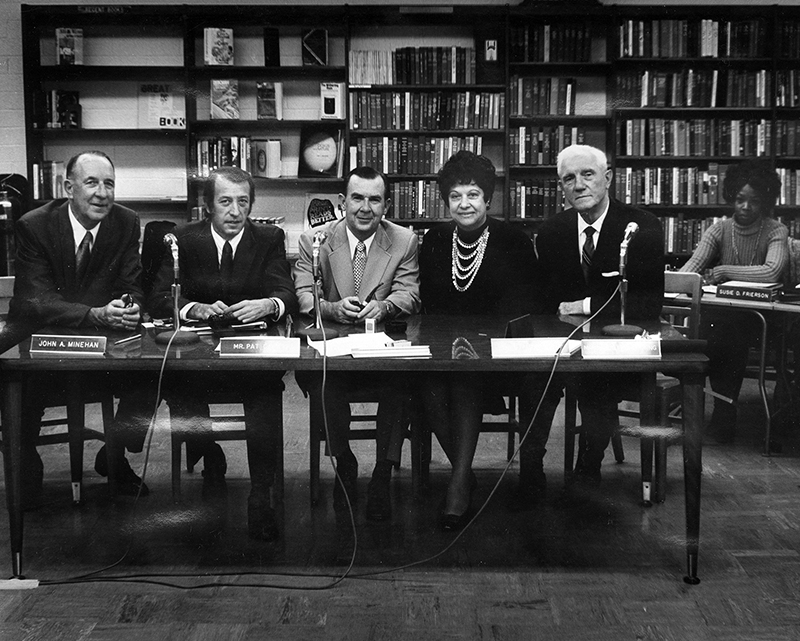
Library service in the area around Vernon and Central Avenues started in 1901 with a small delivery station, which was expanded when the Vernon Branch Library was opened in 1915. One of the original six Carnegie buildings constructed by the Los Angeles Public Library, the structure was severely showing its age by the time Leontyne joined the BOLC in 1961. Additionally, the service in the branch had been substantially downgraded starting in 1954 with limited hours, staffing, and budget. As a result, the book collection shrank, along with circulation. Less than three years later, the Vernon Branch received interior and exterior painting, new interior lighting, and a parking lot. Branch hours were extended, and other branches in the system sent duplicate copies of children's books to help Vernon build its collections. Leontyne also played an instrumental role in obtaining books for the branch. These efforts resulted in instant increased circulation and patronage. Additionally, the Board of Library Commissioners started holding some of their meetings at branch locations instead of exclusively at Central Library. The first branch to host a BOLC meeting in this era was Vernon. All of these improvements bear the fingerprint of Commissioner King.
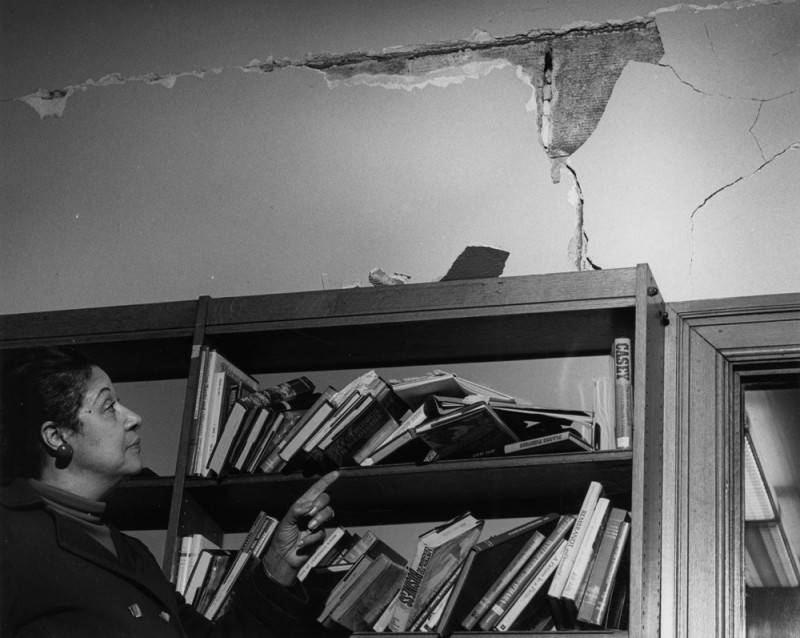
The Sylmar Earthquake in February 1971 brought about the ultimate demise of the Vernon Carnegie building. Two weeks after the earthquake, the Branch was closed due to damage beyond repair, and LAPL announced that it would be demolished. A bookmobile was used as a stopgap until temporary quarters could be found. Leontyne, along with Councilmember Gilbert Lindsay, proved instrumental in securing a short-term location in, ironically, a storefront. Both Leontyne and Councilmember Lindsey were featured speakers when the temporary Vernon Branch opened in September 1972.
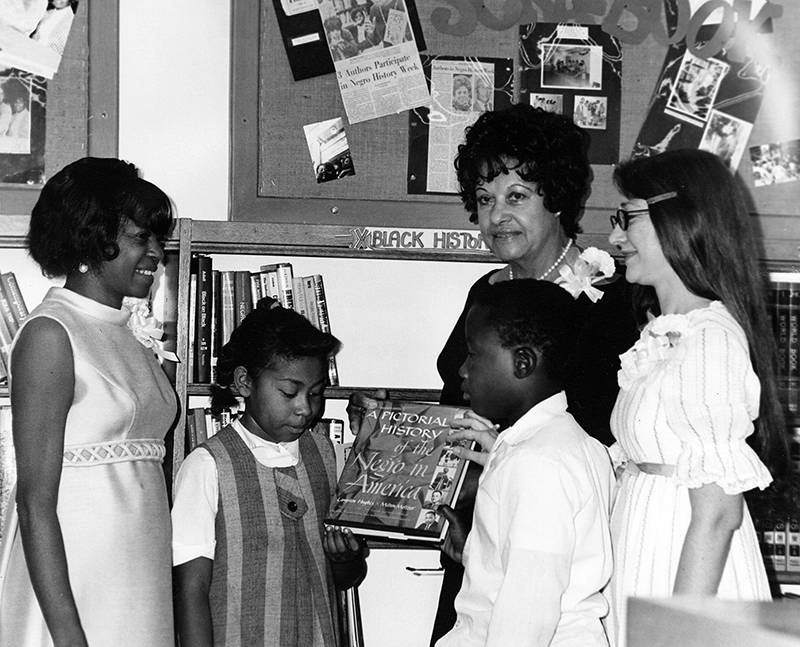
Utilizing federal disaster funds, a new Vernon Branch Library, designed by Mathew Lapota & Associates, was slated for construction on the site of the previous building. The groundbreaking took place in April 1973, where Leontyne was photographed elegantly dressed, and donning a hard hat. She delivered remarks at the ceremony, which took place during her final year as a Library Commissioner. Her tenure with the BOLC had lasted twelve years.
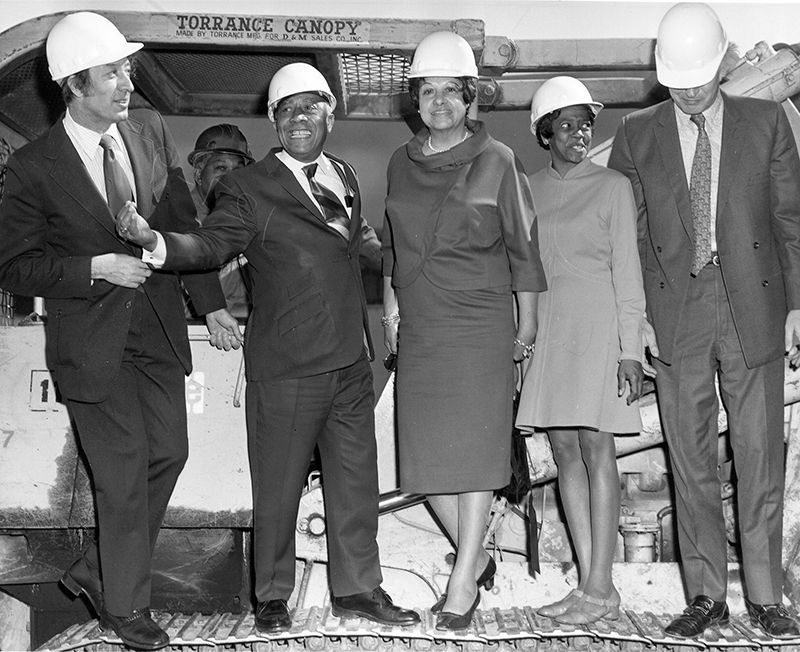
During construction of the new branch building, the Board of Library Commissioners unanimously voted to formally name the Leontyne B. King Community Room of the Vernon Branch. In November 1975, two months before the branch opened, the Star Liters Club, one of many Leontyne had been involved with, donated the large portrait that is still on display. Because the branch was still under construction, the formal presentation of the portrait was made in the Board Room at Central Library. Celes King Jr. and Hortense Woods, Senior Librarian of the Vernon Branch, participated in the ceremony. Leontyne, who had been diagnosed with cancer and was receiving treatment, was unable to attend.
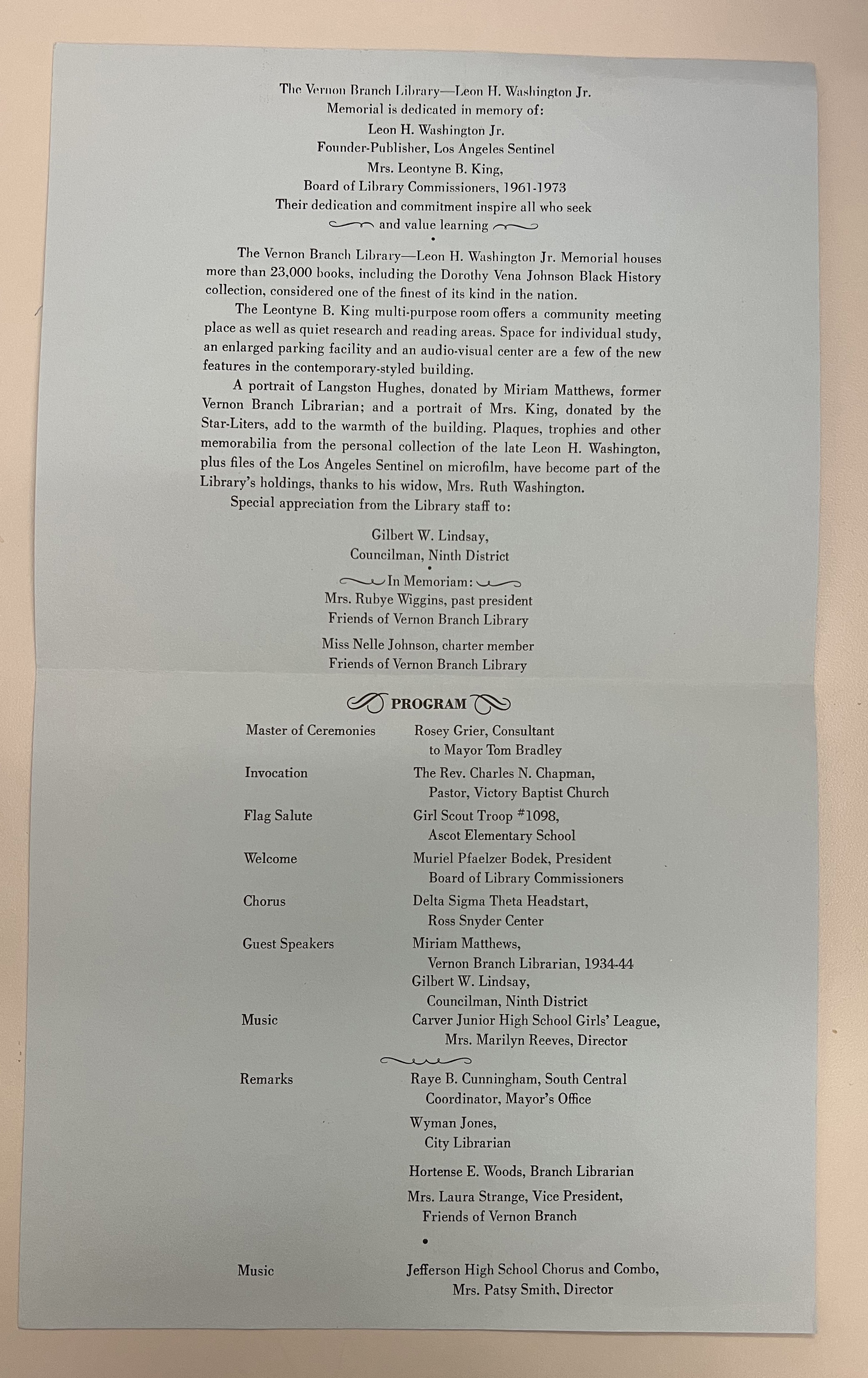
The official opening of the new Vernon - Leon H. Washington Jr. Memorial Branch Library, for which Leontyne had so fervently advocated for, opened to the public on September 2, 1975. The Los Angeles Sentinel did not list her among the attendees, so it’s likely she was too sick to attend. Sadly, Leontyne lost her battle with cancer and passed on January 23, 1976, at the age of 70. A standing-room-only memorial dedication to both Leontyne and Leon Washington was held at the Vernon Branch in February 1976. The turnout for her funeral service was equally impressive, with the Los Angeles Sentinel commenting:
"It was like Los Angeles had turned out to say goodbye to a dear and trusted friend."
Among those who paid tribute at the service was her long-time ally, Gilbert Lindsey, who noted, "She was involved in the growth of this community. She was involved with the library, and this, within itself, will remain a monument to her."
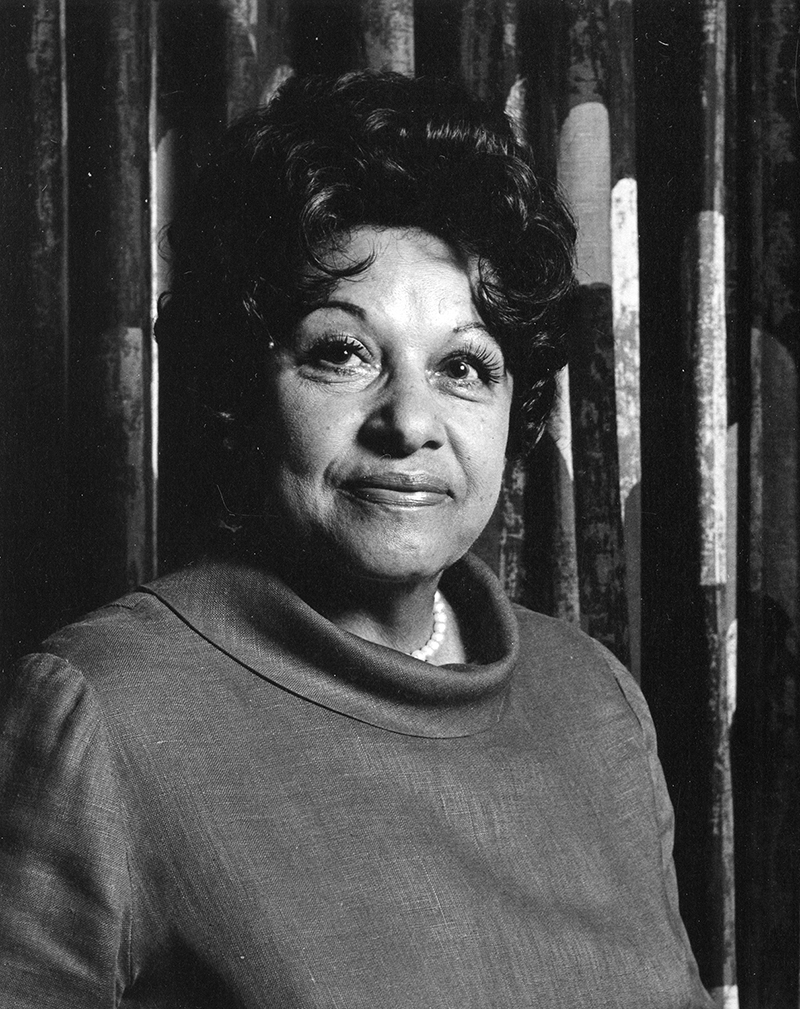
During her thirty-five plus years as an Angeleno, community was always a priority for Leontyne Butler King. From the moment she arrived in Los Angeles, she volunteered her time and talents for the betterment of her neighborhood. As Library Commissioner, she harnessed all resources at her disposal to advocate for the Los Angeles Public Library system as a whole, but also succeeded in giving a voice to her beloved Vernon Branch, which had receded as a priority in the age of Valley and Westside library expansion. Through her involvement with State and National library associations, she also strove to elevate Black voices in library collections. Her name may not be as recognizable as it once was, but the impact of the contributions she made to her community, particularly the Vernon - Leon H. Washington Jr. Memorial Branch Library are indelible.
